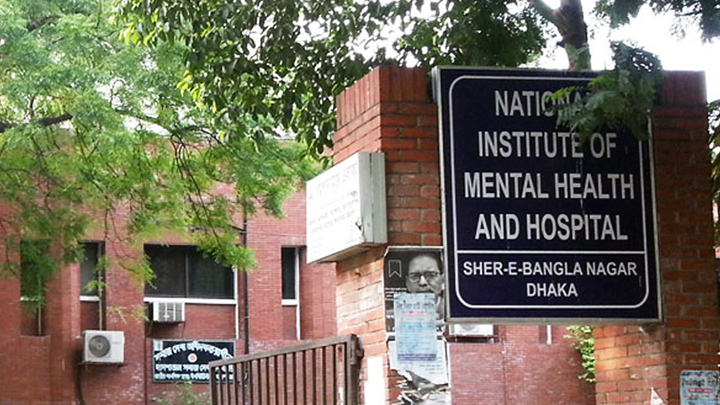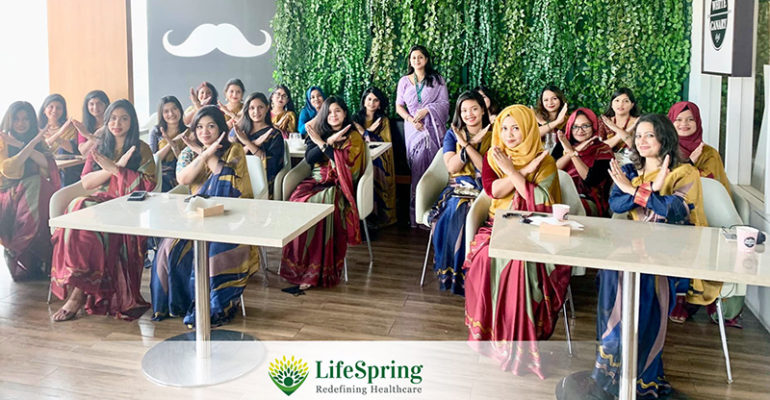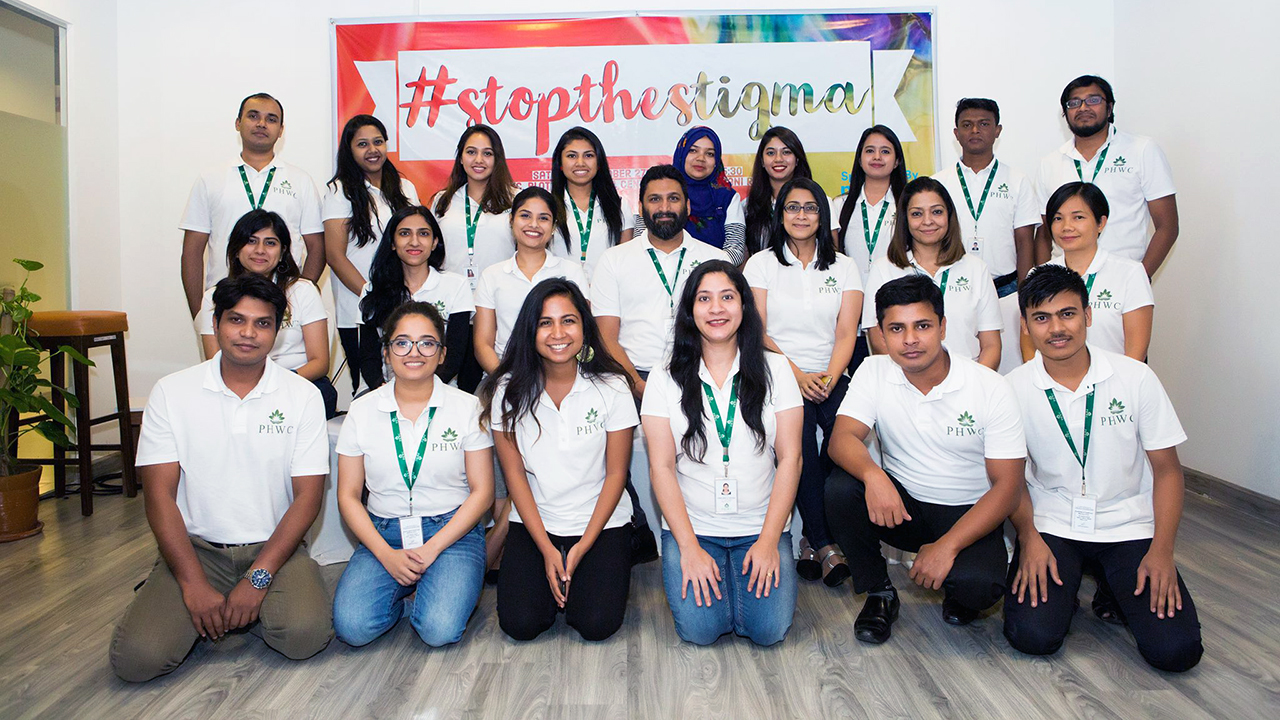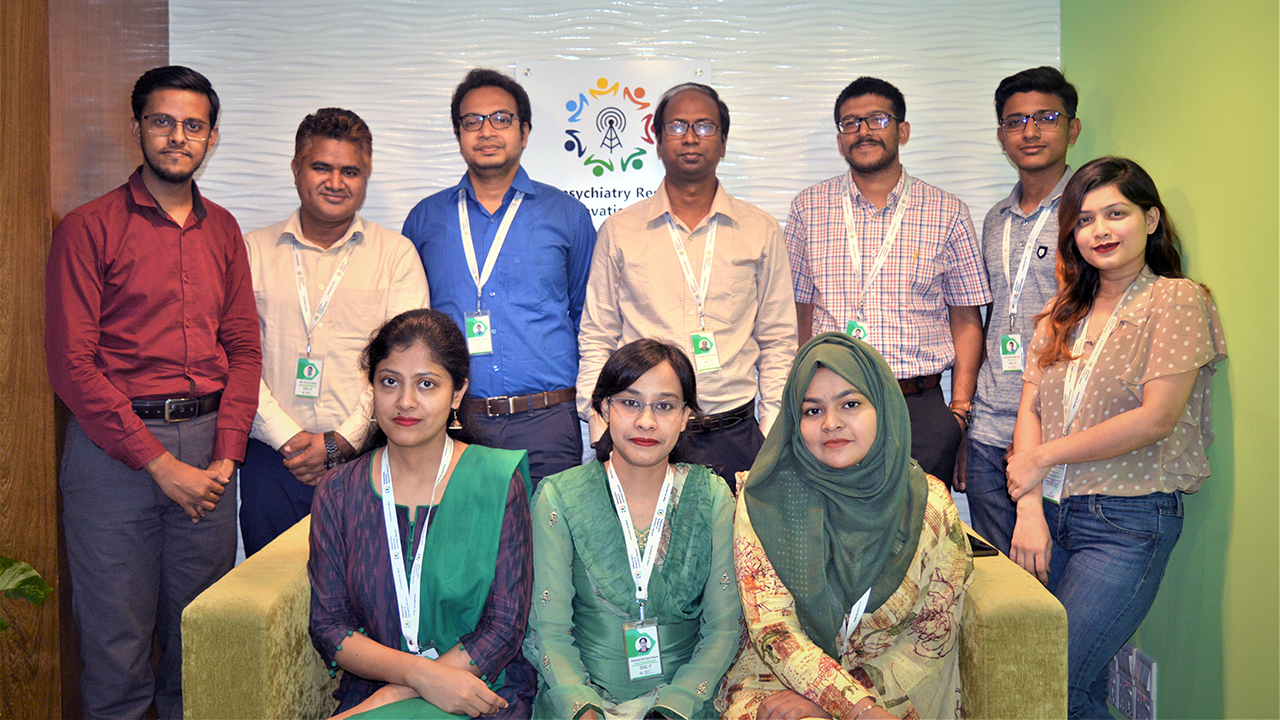GET IN TOUCH
- Please wait...

About 22.5 million people in Bangladesh are suffering from about 13 types of mental disorders, in a government survey conducted in 2019. Besides the adult population, 13.6% of children aged between 7 and 17 were also found to be suffering from mental disorders. More alarmingly, the survey found that 92.3% of adult and 94.5% of child respondents diagnosed with different mental disorders do not receive any treatment. Although Bangladesh has been identified as a country with a vulnerable record in the mental health care sector by the international community, it spends only 0.44% of the national health budget in this sector and has 0.073 psychiatrists per 100,000 people. [1] So, there is a critical need to cater to the mental health needs of Bangladesh, and thus, it is also essential to look at the current offerings in the mental health sector of Bangladesh.

Traditional services have proven inadequate and have gradually been replaced or supplemented by online services that can provide emergency solutions. Some of the traditional services offered are as follows:
| Institution | Mode of operation | Services |
| National Institute of Mental Health (NIMH) | Offline | Counseling (individual + Group) |
| Child Development Center (CDC) | Offline | Counseling (individual + Group) |
| Psycho-social Counseling Unit Ain O Salish Kendra (ASK) | Online & offline | Counseling (individual + Group) |
| Psychological Service Center, Department of Educational and Counseling Psychology, DU | Offline and online | Individual And Couple Counseling |
| Nasirullah Psychotherapy Unit (NPU) Department of Clinical Psychology, DU | Offline | Individual, Couple, Family, Group, and Child Counseling |
| Bangladesh Protibondhi Foundation (BPF) | Offline | Individual, Couple, and Family Counseling |

The statistics regarding treatment gaps in mental health make it clear that current services are often inadequate and lack the necessary resources to tackle problems around the clock. Therefore, private organizations and startups have made significant entries into the mental health scenario. Some of the noticeable ones are:
LifeSpring currently has more than 200 mental health professionals working with them and aims to integrate psychological care into all aspects of society. [3] It offers both online and offline services to its clients. The company has recently started to gain attention through social media engagement. Their services include:

Moner Bondhu aims to make mental healthcare affordable and accessible through online and offline sessions. Since 2016, Moner Bondhu has been tirelessly working for mental health and psycho-social awareness in Bangladesh in six different areas.
Additionally, Moner Bondhu provides customized psycho-social mental health support and well-being services to many organizations, corporate offices, financial institutions, and educational institutes (schools, both Bengali and English medium, colleges, and universities).
Moner Bondhu works for all socioeconomic backgrounds, and by building an extensive support network, it has been able to access even the remote areas of the country. However, as the price is an essential consideration for most people, Moner Bondhu partners up with different organizations to reduce costs and share resources, and make mental healthcare accessible for all. They set an example by becoming the first mental health partner of BGMEA. Subsequently, they developed the country’s first mental well-being center for RMG workers.
Moreover, their development toolkits include baseline surveys and other tools used in different schools in Dhaka in collaboration with USAID. Moner Bondhu developed the first-ever 40-hour-long online courses in Bangla on behavioral skills and psycho-social issues, consisting of 45 modules.
During the COVID-19 crisis, they reached 30 lakh people through their online services. As a result, Moner Bondhu is exceptionally versatile and has cemented its place in the mental health service sector of Bangladesh.

SAJIDA Foundation began in 1987 as a small garage school for disadvantaged children and has grown to be an inclusive social organization that offers healthcare services and other social services for more than 6 million people.
The Psychological Health and Wellness Clinic (PHWC) was established in 2017 in partnership with SAJIDA Foundation. It has become a renowned name in the mental health arena with a wide offering of services. It has multiple benefits that are designed to cater to all demographics. Besides general mental health facilities, it also provides corporate wellness services such as:
PHWC also provides training to professionals and non-professionals. Some of these training modules are:
Besides these set training modules, PHWC also provides custom modules.

Moner Daktar is a concern of Telepsychiatry Research and Innovation Network Ltd. It offers services through its vast network of healthcare professionals. They have three main offerings:
The assessment has been specially designed for Bangladesh, keeping all cultural and language factors in mind.
Psycure provides counseling on suicide prevention, depression, anxiety, and career solutions and has been growing fast in the past few years. Having connected with around 25000 people, psycure is trying to fight the stigma against mental health through different awareness campaigns as well.
Mental Health constitutes a major public health challenge, undermining social and economic development throughout much of the developing world. In Bangladesh, mental health remains ignored as only 0.44% of the total health budget is allocated towards mental health. [4]
With 65% of the pocket spending on healthcare, mental health services become burdensome for people from the lower-income segments as mental health services are already more expensive. [4]
Bangladesh suffers from a lack of personnel in the healthcare sector. There are only 3.05 physicians and 1.07 nurses per 10,000 people in the country. [5] Most of these professionals are focused on urban areas. The situation is even worse in the mental health sector, as mental health professionals are adamant to come by.
There are multiple social stigmas associated with mental health problems and treatment in Bangladesh. Although the situation has been improving, the general outlook of society prevents patients from seeking the help they need. As a result, 92.3% of people with mental health issues do not seek professional help. [6]
Mental health services receive a small portion of the budget, which results in a lack of resources for patients. This weakness in policy has eventually created more systematic problems in different parts of society.
The way forward for mental health services will require a potent combination of support from the healthcare sector (both public and private) as well as public health policy experts. The following recommendations can help the mental health sector of Bangladesh moving forward:
In conclusion, mental health services have historically been tough in Bangladesh because of the lack of recognition of the problem. Thankfully, people are starting to recognize these problems across the country, and they are looking for contemporary solutions instead of traditional ones. Infrastructure development is crucial for the new waves of people seeking assistance and should be prioritized. Both public and private organizations must step forward to pave the way forward.
Eqra Mohammad Resalat Ohee, Trainee Consultant, and Farah Hamud Khan, Senior Business Consultant & Project Manager, at LightCastle Partners, have prepared the write-up. For further clarifications, contact here: [email protected]
Our experts can help you solve your unique challenges
Stay up-to-date with our Thought Leadership and Insights